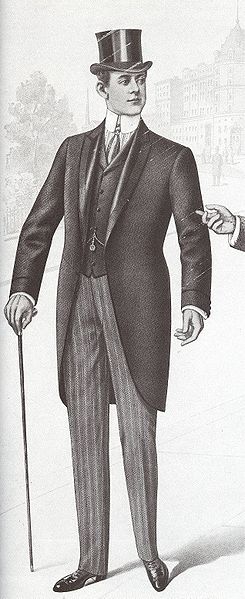Occupy Radio cohosts Rivera Sun and David Geitgey Sierralupe interviewed Ben Page, coauthor of the new study on how politicians ignore the people. Listen here.
If a dictator moved into the White House and condemned the populace into servitude, the US political situation might be a lot clearer. But beneath the lies, false campaign promises and empty rhetoric, this is, in effect, exactly what is going on.
“Rich People Rule,” the Washington Post proclaimed on April 8, 2014, when the Gilens-Page study made headlines by confirming everyone’s suspicions that the elected officials don’t give a damn about government of the people, by the people, and for the people.
In the study “Testing Theories of American Politics: Elites, Interest Groups, and Average Citizens,” Princeton researcher Martin Gilens and Northwestern University professor Benjamin Page spanned twenty years of Republican and Democratic Congresses and Presidents, studying nearly 1,800 issues between 1981-2002. The results were startling. Politicians don’t represent the average citizen, the study finds. They represent business interests and wealthy elites. Elected officials will not give the common citizen what he or she wants – not by petitions, phone calls, emails, letters, faxes, protests, marches, or letters to the editor. Unless the moneyed interests happen to align with the public, politicians always voted against the interests of the citizens.
The implications of the study have only been compounded in the last decade. Since 2008, income inequality has skyrocketed, widening the gap between the rich and the poor. Meanwhile, the 2010 Citizens United decision along with the recent McCutcheon ruling opened the door to the political influence of moneyed interests. Due to these factors, the rich are enjoying unprecedented access to political control. Monsanto pours millions into anti-GMO labeling advertisements. The Koch brothers fund climate-denial “studies”. The Walton family makes more than the entire bottom 40% of the populace and tells their employees to apply for welfare. Billions are spent on the presidential elections, making the fundraising efforts of ordinary citizens seem pitiful in comparison. Bake sales, car washes, and Kickstarter campaigns don’t even add up to what corporations spend on a single politician. The average citizen doesn’t have the same buying power as wealthy elites and business interests. With nearly fifty percent of the populace struggling at or below international standards of poverty, the odds are stacked heavily against citizens’ movements.
This has profound ramifications for American citizens – and even more serious impacts for activists. Keystone XL protesters, Trans-Pacific Partnership objectors, and fracking opponents take note: either social movements are going to need a lot of money to buy officials . . . or activists are going to have to wage struggle where it counts.
If citizens want to see government of the people, by the people, and for the people, they’ll need to fight smarter, not just harder. The pervasive idea that “if we just shout loud enough, the politicians will hear us” has been thoroughly disproven by the Gilens-Page study. It did not matter if activists collected 100 or 100,000 signatures. Politicians did not respond to petition politics and symbolic demonstrations.

In addition to demonstrating incontrovertibly that we, the people, are not the constituents of the elected officials, the Gilens-Page study also shows that politicians serve the business sector and wealthy individuals remarkably well – which is why the rich and powerful fund campaigns, throw money into advertisements, buy up voting machines, and hire lobbyists.
While the Gilens-Page study is evoking cries of “democracy is dead”, it is important to note that United States democracy was aborted in 1789 when the government was organized as a representational republic. In this system, representatives were elected by the white, propertied males who made up 6% of the population. State legislators appointed senators until 1913. Contrasted to popular, direct democracy in which every citizen regardless of race, class, or age votes directly on the issues, the representational republic of the United States was – and still is – an anemic substitute for real democracy.
Nor can this representational republic be called a broken system. United States government works exactly as it was designed, keeping ordinary citizens disempowered while pandering to the wealthy elite. Without a powerful citizens’ movement rooted in effective methods of nonviolent struggle, voting the current politicians out of power is not likely to resolve the situation. Currently, there is no indication that the next crop on Capitol Hill will behave any differently than the last. The Gilens-Page study empirically proves that both Democrats and Republicans behave exactly the same in regards to prioritizing the concerns of the rich.
If citizens wish to see their will manifested in this system of government, they will need to move beyond symbolic actions such as petitions and protests, and engage in effective economic, political, and social sanctioning actions against politicians, corporations, and wealthy elites.
Citizens must learn to attack politicians, corporations, and wealthy individuals in response to legislation they oppose. Nonviolent economic sanctions can be applied to these groups by boycotting their companies and products, disrupting shareholder meetings, waging effective campaigns via social media to effect price drops in their stocks, pushing divestment campaigns, and impacting the operational costs of their businesses.
Simultaneously, citizens can learn to define “legitimate government” as that which enacts the will of the people. By this definition, an elite-controlled government can be viewed by the citizens as “illegitimate”. By refusing to cooperate, acknowledge, or consent to unjust laws, the people can deny officials legitimacy when they act against the will of the people. Nonviolent sit-ins and assemblies can shut down public offices and demand resignations. Citizens can non-cooperate and refuse necessary services, skills, knowledge, or assistance to public officials and offices that act against the interests of the people. Eligible voters can, of course, vote a politician out of office, but they can also boycott an election that is rigged by the unfair influence of big money, thereby depriving the winners of the election the “mandate of the people”.
Additionally, citizens can engage in acts of civil disobedience to unjust laws. State and local nullification of objectionable legislation can erode the validity of a law – and the authority of lawmakers – by making it unenforceable among the citizens. Police can be excused from enforcing the objectionable laws by local city councils and county commissioners. Likewise, nonviolent action by citizens can be fully protected at the local level.
These types of nonviolent sanctions can be applied effectively and with powerful precision. When used correctly, strikes, boycotts, divestments, non-cooperation, and civil disobedience restore the system of checks and balances by putting social and political power into the hands of the people.
For the citizens engaged in the broad-spectrum struggles for social, economic, political and environmental justice that is becoming known as the Movement of Movements, the Gilens-Page study provides refreshing proof of the suspicions of many people: the political system serves the elite. More effective, powerful forms of nonviolent action are necessary to address the combined crises of political corruption, wealth inequality, corporate domination, economic depression, and climate change. With this clarity about the political system, citizens can apply their efforts more effectively, teaching movements for social change, politicians and the nation that citizens can demand change . . . and get it!
This article was originally published in Truthout.org. Reprinted with permission.
Author/Actress Rivera Sun is a co-founder of the Love-In-Action Network, a co-host on Occupy Radio, and the author of two novels, The Dandelion Insurrection and Steam Drills, Treadmills, and Shooting Stars. www.riverasun.com

jimmy
says:Occupy Radio is now a nationwide network! Multiple people have invesged large amounts of time and energy to create, in typical Occupy fashion (grassroots and organic), an investigative team that is probing many of the questions of our time that need to be explored.
The longest-running Occupy Radio effort can be found at: http://kboo.fm/OccupyPortlandRadio
Check out the Occupy Radio podcasts at http://occupyradio.podomatic.com/